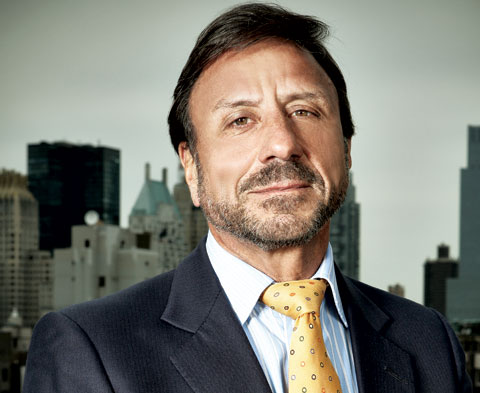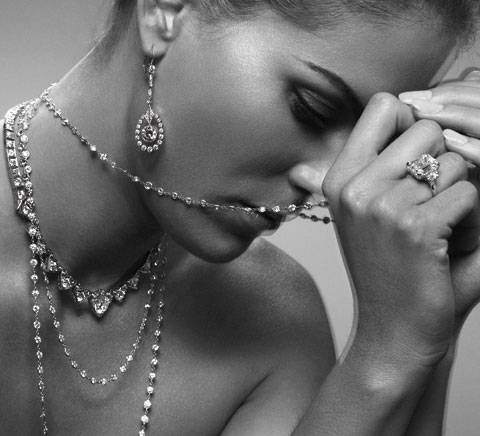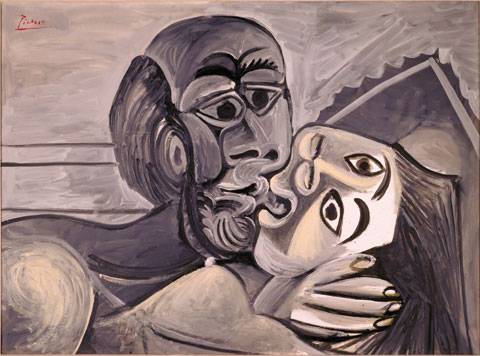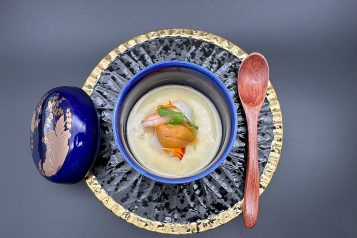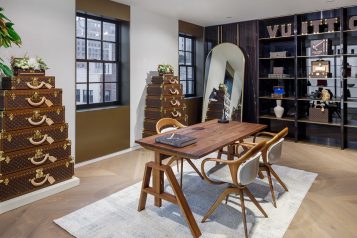“If the guest wants something special, we give it to him. If he’s a regular guest, we know what he wants and he doesn’t have to ask for it a second time.”
From the very moment that Sir Rocco Forte was born in Bornemouth, England, to Charles and Irene Forte, it was certain that he was destined for greatness. Throughout the course of his life, successful businessmen have surrounded Forte and it was only natural that he should follow in the paths of his father and grandfather. “If you’re brought up in a family that’s entrepreneurial, you tend to want to be that yourself,” he explains thoughtfully, while gazing out the window of his hotel suite in New York’s Hôtel Plaza Athénée.
Forte is in New York scouting a possible locale for his first U.S. hotel, which, while in the works, can still be considered a pipe dream. “I want to open a hotel in New York,” he admits. “Although I wanted to get established in Europe first; I didn’t want to have two lines of communication. I like the idea of being able to visit my hotels on a regular basis, and if they’re too spread out, it’s difficult to do.” Forte’s goal is to expand his portfolio to at least 20 hotels, so despite his current age of 63, he has no plans as of yet to retire.
The Rocco Forte Collection is one of Europe’s leading luxury hotel groups and they are now the largest city center luxury hotel brand in Europe, overtaking the Four Seasons and posing strong competition for the Mandarin Oriental. To date, The Rocco Forte Collection includes Hotel Amigo in Brussels; Hotel Astoria in St. Petersburg; The Balmoral in Edinburgh; Brown’s Hotel in London; Hotel de Russie in Rome; The Lowry Hotel in Manchester; Hotel Savoy in Florence; Villa Kennedy in Frankfurt; Hotel de Rome in Berlin; Le Richemond in Geneva; and The Charles Hotel in Munich.
On February 6, 2008, the company announced plans for expansion in the Middle East, with a property in Abu Dhabi to open late 2009. This fall, Rocco Forte Collection will unveil the Augustine in Prague and also plans to open resorts in Sicily and Marrakech in 2009 and 2010.
Forte’s unique hotel brand defies the formula that most hoteliers live by and exudes a unique personality in each property’s design and décor. “The idea was always to create a luxury European group,” Forte explains. “There is no company that has significant coverage of all the major cities in Europe. In most of the major cities, individuals or small regional groups own the hotels. We try to reflect the character and the nationality of each country we’re in. Each property has its own name.” While this may have resulted in a high level of difficulty for marketing and branding, Forte insists that each property is held to the same high standards.
Each luxury hotel in the Rocco Forte Collection offers something unique, whether it is world-renowned cuisine from restaurants like Gusto in Frankfurt, Le Jardin du Russie in Rome, The Grill in London, and Hadrian’s Brasserie in Edinburgh, or lavish treatments and services offered at one of the notable hotel spas.
The luxuries of the Rocco Forte Collection hotels are certainly more than just skin-deep; although much hemming and hawing goes into every painstaking design aspect and hotel amenity, it is the high level of service that truly defines Forte’s hotel assemblage. “Sometimes [hotel staff] act like they are more important than the customers,” says Forte, “but I don’t think that’s the right way in the modern world.” The magnate feels that many luxury hotels often employ a very pompous staff, particularly in some of the grander old properties in many European cities, so he tries to create a friendly and relaxed atmosphere that is more warm and welcoming than what has been traditionally offered. While he for luxury without attitude. “What we try and do is personalize the service to the guest,” explains Forte. “If the guest wants something special, we give it to him. If he’s a regular guest, we know what he wants and he doesn’t have to ask for it a second time. Eventually guests get really comfortable with the hotel and it becomes like a second home.”
Forte’s success harkens back to his grandfather, who moved to Scotland in 1914 and owned several cafés, which he eventually sold before moving to the south coast of England. It was thanks to his grandfather’s business savvy that Forte’s father was able to start his highly successful career. Forte’s Italian-born father began his career when he opened up a milk bar in London in the 1920s. “[My grandfather] gave my father the education to do what he did,” explains Forte. “He learned everything from him. [My father] was much more successful than he had been, but he still sort of deferred to him.” At its peak, his father’s firm comprised 800 hotels including George V in Paris, Sandy Lane in Barbados, and the Hôtel Plaza Athénée in New York; 1,000 restaurants; and almost 100,000 employees in 50 countries. “My father was a unique man,” recalls Forte. “It was amazing what he achieved.”
As the only son in a family of eight, Forte began working in his father’s hotels during his school holidays when he was only 15 years old, although it wasn’t until 1992 that Forte became chief executive of his father’s firm, Forte Plc. The following year, Forte’s father passed on full control and became a chairman within the company.
“It was a typical succession situation,” says Forte. “He was overprotective of me because he never wanted me to make a mistake. He didn’t like giving up the responsibility. Eventually I was chief executive, but I would still rather look up to him. I tried to change things, and eventually we had a few rows over that and he fired me several times. He didn’t actually ‘fire’ me, but at one point, I thought if I can’t change things, I’m not going to stay, so I resigned.”
Sir Rocco was knighted in December of 1994 for services to the U.K. tourism industry, thanks to the work he put in with his father’s company. However, the following year, the family business became the subject of an intense hostile takeover when British leisure and television group Granada made a play for it. Forte eventually and reluctantly conceded defeat to Granada, who later broke up the Forte chain. “With a hostile takeover in the U.K., there’s not much you can do to defend yourself. Basically what you can do is push the price up so the bidding company gives up. To keep their share price going, they had to keep buying things, and they decided on us. I worked in that company all my life, I had plans for it, I saw a future for it; it wasn’t really about the money. It was a completely wasted effort because a very good company had been destroyed.”
Two years later, Forte started the new company, dubbed the Rocco Forte Collection, with the vision of creating a collection of stylishly designed luxury hotels. In 1997, Forte snapped up The Balmoral in Edinburgh, Scotland, which had been previously run by his father’s company. This was the first of many hotels that would help shape his new brand. “My father’s original company was a broad spread of businesses,” says Forte. “It was hotels and catering, but it was really a conglomerate: in-flight catering, restaurants, roadside service areas and cafés, and hotels, from budget to 5-star; we were in almost every marketplace and each section of the company was expanding quite fast. With the new company, it’s one product. I’ve become a hotelier again instead of just a businessman.”
Most hotels in the Rocco Forte Collection are constructed from existing buildings or previous hotels. Some examples include Frankfurt’s Rocco Forte’s Villa Kennedy, which is constructed around an early 20th century private home, and the soon-to-open Rocco Forte’s The Augustine in Prague, which will be created from a complex of five historical monument buildings, the largest and most important structure being St. Thomas Monastery, which dates back to the 1400s. Forte prefers to use old buildings, despite the fact that building a new structure from the ground up is more economical, as he feels an older building can provide the hotel with a particular charm.
“Not all buildings lend themselves to conversion into hotels,” says Forte. “With a lot of buildings, you can’t get the right configurations, or they’re not economical in the way they convert. When I walk into a building I have a rough idea quite quickly of whether it works or not.” The Rocco Forte’s Hotel de Rome in Berlin is a prime example of a conversion of a historic building into a grand five-star hotel. The structure, originally built in 1889 by architect Ludwig Heim, housed the head office of Dresdner Bank until 1945. “It’s the only old building in central Berlin because everything else was destroyed by the war,” explains Forte.
Forte’s sister Olga, who also spent her youth learning the ropes at Forte Plc., is the mastermind behind the modern and relatively simple décor in all of the Rocco Forte Collection hotels. “I have five sisters and Olga is the only one that works with me,” says Forte. “She worked in the old company as well and she was the one with a real clear vision as to how the hotels should be designed. One of the nice things with my new business is being able to work very closely with her. The old company was so big that I was a long way away from the action, but with any new hotel, we sit down, plan it, and she does most of the details, but I get involved in the space planning and how the hotel functions from an operational point of view.”
One of the newest additions to the Rocco Forte Collection is set to open in Abu Dhabi in August of next year, and Forte would like to continue to expand in the Middle East. “I want to get into a number of cities that I’m not in yet, like Paris, Milan, Barcelona, Amsterdam, Moscow, and Venice. Although we’ll see how much appetite I have left.”
Because of Forte’s genius for unique business ventures, he has been able to establish himself as the chief provider of some of the most luxurious hotels across Europe. To Forte, while there are many elements that must come together in order to create a successful hotel brand, it all comes down to the customer. “Luxury hotels are all about service,” says Forte. “It’s about delivering to the customer on an individual basis. All these hotels have gimmicks and ways to get people talking about their hotels, but if that doesn’t work, the customer won’t keep coming back.”







